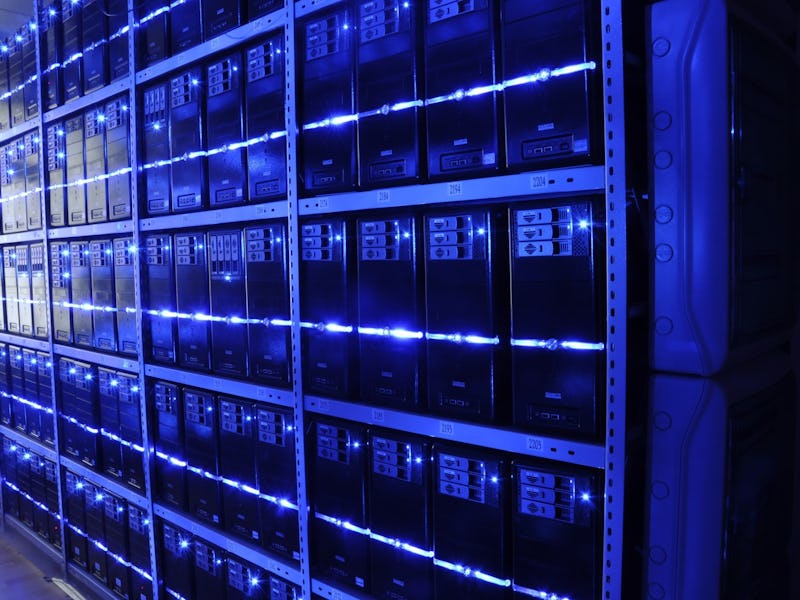Google's DeepMind A.I. Just Cut Its Power Bill in Half
"Give the A.I. control over the power grid," they said. "You'll save money," they said.

Google’s DeepMind — the same one that beat Go master Lee Sedol — is now working toward more practical ends. The company’s cutting-edge A.I. is using its virtual brains to cut electricity costs at Google data centers. And like it did at Go, DeepMind excels at this game — it figured out how to reduce cooling bills by 40 percent.
Beating a world class Go player was one kind of achievement for A.I., but this development could wind up making that seem trivial. Google’s fed massive amounts of information on its data centers’ energy consumption habits into an “ensemble of deep neural networks,” hoping that the smart-machine could make some efficiency updates. Engineers have long toiled to reduce consumption in data centers, which are (necessarily) notorious energy sucks, mostly because Google cares about reducing its impact. That’s why this breakthrough is particularly remarkable. Google’s data center systems are already optimized for energy efficiency, but DeepMind was able to make them 40 percent better. Once Google shares more details about the solutions, this breakthrough could revolutionize energy usage around the world — in other data centers and possibly even homes.
DeepMind co-founder and CEO Demis Hassabis told Bloomberg that the system oversaw about 120 variables — fans, windows, and so on. Like Go, it was a game — except, in this case, the end goal was just to minimize a metric called Power Usage Effectiveness. Needless to say, DeepMind won. The project’s engineers noted in a blog post that DeepMind was able to blow previous efficiency plans out of the water, reducing the PUE measurement by 15 percent overall, which was “the lowest PUE the site had ever seen.”
When DeepMind competed against Sedol, experts watched and analyzed its moves. Several times, these experts deemed a move ludicrous; later, when DeepMind crushed Sedol, they were left scratching their heads. It’s likely that the same applied here: with 40 percent reductions, DeepMind must’ve been up to some wild shit.
The internet, of course, was quick to churn out the quips:
Sure, we may be saving ourselves from high electricity bills, but if Skynet is the result? No thanks. (In the meantime, though, we’ll take the lower electricity bills.)